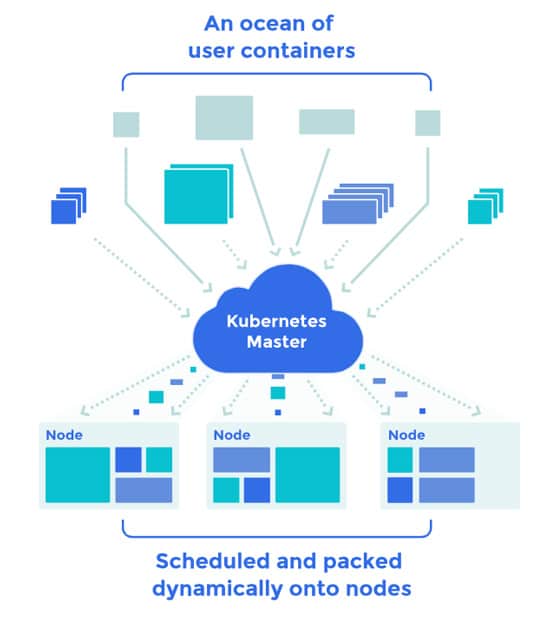Google announced today that the open source container orchestration system, Kubernetes, has reached its version 1.0 (v1) milestone. The v1 milestone indicates that Kubernetes is production ready. Google is also announcing, along with the Linux Foundation, the Cloud Native Computing Foundation (CNCF). The CNCF will advance the building of cloud native applications and services.

Kubernetes is an orchestration system for Docker Containers. Kubernetes manages workloads ensuring that their state matches their intention. In the past year Kubernetes has become a successful and popular project that has over 14,000 commits from over 400 contributors. Now Kubernetes is production ready with a slew of features.
Kubernetes features:
- App Services, Network, Storage
- Includes core functionality critical for deploying and managing workloads in production, including DNS, load balancing, scaling, application-level health checking, and service accounts
- Stateful application support with a wide variety of local and network based volumes, such as Google Compute Engine persistent disk, AWS Elastic Block Store, and NFS
- Deploy your containers in pods, a grouping of closely related containers, which allow for easy updates and rollback
- Inspect and debug your application with command execution, port forwarding, log collection, and resource monitoring via CLI and UI.
- Cluster Management
- Upgrade and dynamically scale a live cluster
- Partition a cluster via namespaces for deeper control over resources. For example, you can segment a cluster into different applications, or test and production environments.
- Performance and Stability
- Fast API responses, with containers scheduled < 5s on average
- Scale tested to 1000s of containers per cluster, and 100s of nodes
- A stable API with a formal deprecation policy
The formation of the CNCF will focus on creating and driving the adoption of a new computing paradigm that is optimized for modern distributed systems environments. Partners include Google, the Linux Foundation, Docker, IBM, VMware, Intel, Cisco, Joyent, CoreOS, Mesosphere, Univa, and Red Hat. Kubernetes will seed the CNCF, which will govern future open source development of Kubernetes. The CNCF will help the technical community to build new open source software make the entire container toolset more robust. The CNCF will also evaluate future projects to determine whether they will be included in the foundation and how well they work in the overall toolset.




 Amazon
Amazon